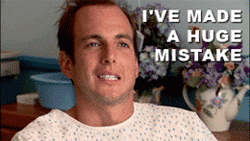Manmademan
Member
But it isn't necessarily as dogmatic as much of social conservatism, which is where, IMO, most of the problems arise from.
this brings up another good point, in that fiscal and social conservatives tend to have two completely different agendas, even though they may vote for the same candidates.
Intelligent conversations with fiscal conservatives isn't exactly a rare thing. There are many ways to approach the debt/deficit argument.
SOCIAL conservatives tend to get banned fairly quickly around here though, especially as this forum is a lot more gay friendly than average.
I did misinterpret what you meant by college graduation rates. I am speaking of education level achieved.
http://www.people-press.org/2011/05/...-news-sources/
Again, according to this, the percentage of "solid liberals" and "staunch conservatives" is about the same.
Ok, so we're cool there. But even here, looking at your data, it agrees with me.
According to that chart, 27% of Solid liberals hold a postgraduate degree, 23% hold bachelors degrees, 27% have "some college" and only 23% have "high school or less"
Looking at "staunch conservatives", 12% have post doctorates, 22% have bachelors, 28% have "some college", but 37% have only a high school education or less. That's significantly higher than solid liberals, any way you interpret the data, which agrees with what I've been saying that those with only high school educations are far more likely to identify as conservative and vote republican.

